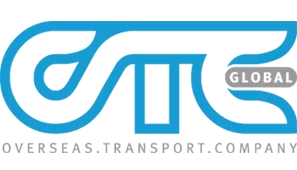Over the years, we have built an extensive network in Canada. This allows you to benefit from the advantage of us being able to solve your logistical challenges quickly and efficiently, whether by train, ship, or airplane.
Looking to transport your goods safely and affordably to the USA? Our qualified team collaborates closely with American agents to ensure the smoothest possible process. We cover all logistics, from customs clearance to final delivery, providing you with a comprehensive service package.
With our expertise in transport and relocations, we guarantee to find the suitable method to efficiently and cost-effectively handle your logistics project to or from Mexico.
Reliable guidance is indispensable for a relocation or transport to or from Costa Rica. That’s why we offer you a range of services, ensuring your logistics project is guaranteed to be a complete success
With our local presence, we provide comprehensive logistic services for your personal and business needs in the Dominican Republic.
Planning a private or commercial relocation to Cuba? We offer personalized consultation and comprehensive services for your transportation or relocation needs, ensuring a seamless start to your business ventures in Cuba.
For transportation or relocation to or from Jamaica, you have the right partner by your side with us. Our extensive experience and wide-reaching contacts ensure a smooth process in every aspect.
North America – Worth Knowing
North America, consisting of Canada, the United States, and Mexico, is a critical axis in the global logistics and freight management industry. The region not only serves as a vast market for imports and exports but also stands as a central hub for transatlantic and transpacific trade. This extensive guide delves into the detailed dynamics of North America’s export logistics, import mechanisms, and the interaction of these processes with Germany, Austria, and Switzerland (the DACH region). Furthermore, the discourse expands to cover the intraregional transport connections between the northern and southern territories of the continent.
North America’s Export Logistics
The export sector in North America is supported by an advanced network of logistics and transportation systems. This network facilitates the efficient movement of goods to international markets, particularly to Europe and Asia. The export dynamics are underpinned by the extensive use of technology and automation in the supply chain, improving the reliability and speed of overseas shipping.
North America to Europe: Streamlining Trade Routes
The United States, Canada, and Mexico have developed their ports along the Atlantic and Pacific Oceans to serve as major gateways for exports. For instance, in 2019, the Port of Los Angeles handled approximately 9.3 million container units, making it one of the busiest ports in the world. These ports feature advanced logistic technologies such as automated container handling and data-driven management systems that streamline the export process. Major goods exported to Europe include automobiles, machinery, and agricultural products, which are facilitated by bilateral trade agreements that reduce tariffs and streamline customs procedures.
Intermodal Transportation Systems in North America
Intermodal transportation, which combines different modes of transportation like rail, truck, and sometimes air, plays a vital role in North American logistics. This system benefits from the strong railway networks in the United States and Canada, which together boast over 113,000 miles of track. Intermodal terminals enhance the efficiency of moving goods, especially bulk commodities from agricultural and mining outputs, to ports for export. The integration of real-time tracking systems and IoT technology further ensures the integrity and timely delivery of shipments.
Import Dynamics in North America
North America’s import landscape is shaped significantly by its trade agreements and the advanced logistics infrastructure designed to accommodate a wide range of imported goods from international markets.
Impact of NAFTA and USMCA on Imports
The transition from NAFTA to USMCA in 2020 introduced several new trade provisions, which aimed at increasing North American content in manufactured goods and improving labor rights within the trading bloc. These changes have led to a more integrated supply chain across the three countries, facilitating smoother and more cost-effective import processes. In 2021, the total trade value of goods imported into the United States from Mexico and Canada was estimated to be over $600 billion, indicating a robust import sector.
Logistics Innovations in Import Management
North American ports incorporate advanced technologies such as AI-driven predictive analytics and blockchain for documentation processing, which significantly reduces the time goods spend in customs. Automation in port operations and customs procedures has also helped handle the increasing volume of imports, which includes electronics from Asia and textiles from South America. These technological enhancements not only streamline operations but also increase transparency and reduce the likelihood of delays.
Export and Import Relations with the DACH Region
The economic ties between North America and the DACH region are facilitated by a mix of matured trade agreements and modern logistic strategies, fostering a robust trade corridor.
Trade Agreements and Economic Ties
The trade volumes between North America and the DACH countries are supported by various agreements that ease the exchange of a wide array of goods. In 2020, Germany alone exported approximately $125 billion worth of goods to North America, with automobiles and machinery being the primary exports. Similarly, North American exports to Germany included aerospace products and pharmaceuticals. These exchanges benefit from reduced tariff barriers and standardized regulatory procedures, promoting a fluid trade environment.
Challenges and Opportunities in DACH-North America Trade
Navigating the regulatory landscapes of different countries presents both challenges and opportunities. For instance, European regulations on product safety and environmental standards are stringent, requiring North American exporters to adapt their products to meet these criteria. However, this adaptation process often leads to innovation and improvements in product design and sustainability practices, ultimately enhancing market competitiveness.
Transportation Networks within North America
The internal connectivity within North America is crucial for the efficient distribution of goods across the continent, particularly between the north and the south.
Logistic Challenges in Cross-Border Transportation
The logistical complexities involved in cross-border transportation between the USA and Canada and Mexico are significant due to varying customs, immigration laws, and trade policies. Advanced logistical solutions, such as integrated supply chain management software and multicountry consolidation services, have been developed to address these challenges. These technologies help synchronize cross-border operations, ensuring compliance and efficiency in freight movement.
Enhancing Connectivity to Southern North American Countries
Improvements in infrastructure, such as the development of the USMCA Corridor—a proposed freight and passenger rail line intended to connect Canada, the USA, and Mexico—illustrate efforts to enhance logistical connections. This corridor is expected to facilitate the smoother transfer of goods, reduce transportation costs, and promote economic integration between the northern and southern regions of North America.
This detailed analysis of North America’s role in global logistics and freight management underscores the region’s strategic importance in international trade. By comprehensively understanding these dynamics, businesses and policymakers can better navigate and leverage the opportunities within this vibrant economic landscape.
Questions about your move or transport? Send us an individual inquiry or simply give us a call!
Our experienced team will advise you in detail and without obligation!
Headoffice in Berlin:
OTC Global GmbH
Helmholtzstr. 2-9
B 04.010
D-10587 Berlin
Phone: +49 30 208 4883 80
Fax: +49 30 639 697 44
E-Mail: [email protected]
Office Hours:
Monday – Friday 08:00 a.m. – 5:00 p.m.









